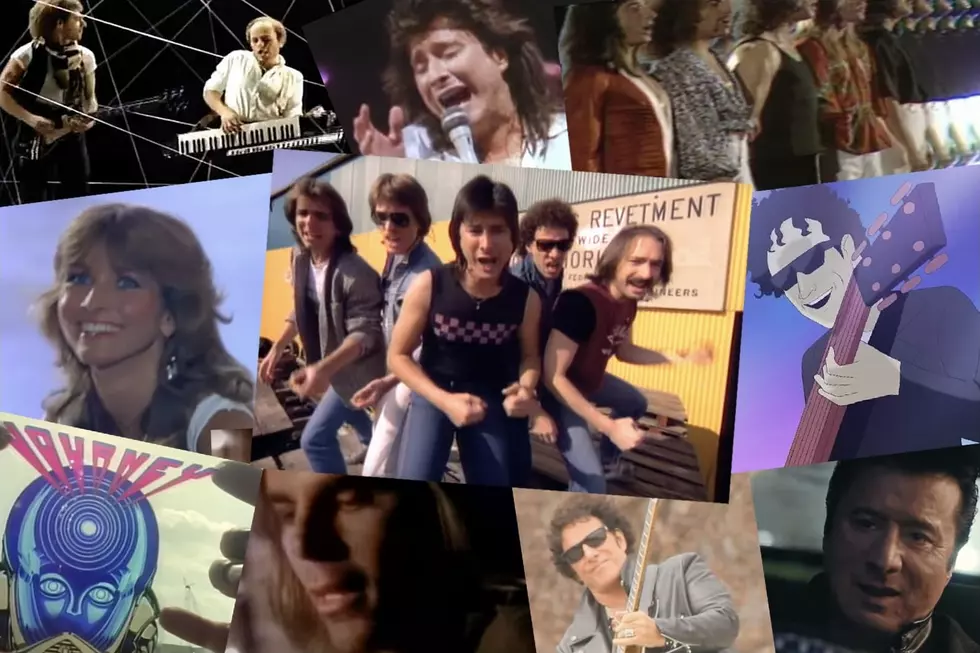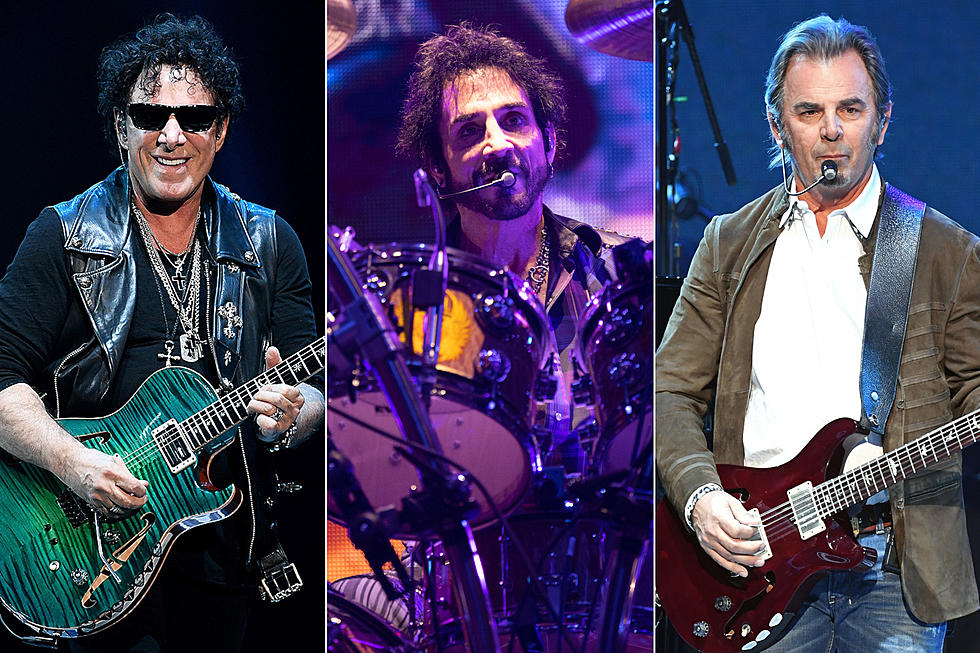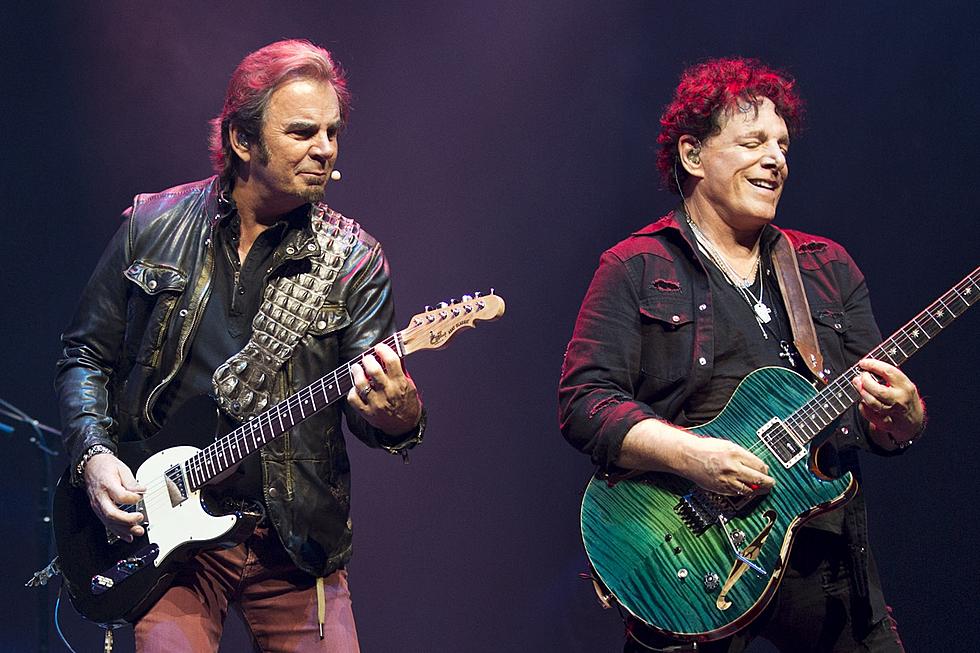
Jonathan Cain’s Journey to Stardom Began With Unlikely Instrument
Jonathan Cain is best known for his work with the Babys, Bad English and Journey. His newly released autobiography Don’t Stop Believin’: The Man, the Band and the Song That Inspired Generations also delves into his life away from those bands.
Turns out, for instance, that he once considered a very different career path. Cain discusses that transformative decision, as well as his father's lasting impact and a very memorable encounter with a famous actress, in this exclusive UCR interview.
It was interesting to read that you’d originally felt a calling to the priesthood.
Yeah, I think the fire at my school, which I talk about in the book, was the game changer for me, because that was my safe place – and all of a sudden it wasn’t so safe anymore, you know? And as a kid, you just don’t understand chaos very well. They think it was one of the kids who did it, a new student at our school, but the guy will never really confess to it. Meanwhile, we were all wondering what really happened, but the church just tried to sweep it under the table. The Chicago Fire Department did a great job of keeping the investigation alive. But just getting past those few years was pretty rough. At least until my dad put an accordion in my hand, anyway. After that, I was off and running! [Laughs.] A good distraction, huh?
Absolutely.
With all the Italians at the deli, I became an instant entertainer. I was Little Dick Contino. All I needed was the bow tie and the smile, you know? I think the accordion was bigger than I was when I started! But when I look at it now, it’s this tiny little thing.
Is that an instrument that you’ve revisited over the years?
Yeah, I bought one in New York City just a few years ago, brought it on the bus and was serenading the guys. It was hysterical. [Journey bassist] Ross [Valory] actually loved going to sleep to it. He said, “If you could just play some, I’ll go lay down in my bunk.” So, I’d play all these old Italian songs, and he’d nod off. He’d say, “That’s just so great, falling asleep to your accordion.” [Laughs.] Ah, Ross – what are you gonna do? But he’s the one who encouraged me! He’s the historian of the band. He knows all the wars. Anything military, he’s on it. I said, “Well, you should be writing a book!” He said, “No, no, you’re the one with the book!” So, it was a challenge. It was nothing like writing songs. You’ve got to get the memoir voice going. But I had some really good people helping me with it along the way. When I first submitted it, they wanted a music book out of me and they weren’t necessarily interested in my story. I said, “I’m not going to write a Journey book. I’m writing my book.” So, I pulled out of that deal, thankfully, and I almost put it on the shelf. I was like, “I don’t know what’s going to happen.” But then Zondervan came forward a few months later, and it just felt like kind of a godsend. It was really wild.
Watch Journey Perform 'Open Arms'
It was also interesting to discover that you crossed paths with the New York Dolls, seeing them in concert in their heyday.
Oh, yeah! It was our first real exposure to the Sunset Strip too. What a first band to see! As crazy as it was, that was kind of the beginning of all that sort of transgender thing in rock 'n' roll. The Rocky Horror Show was right around that same time. They were putting the show on at the Roxy, with Tim Curry as Dr. Frank N. Furter. And then there was all the glitter, and David Bowie doing Ziggy [Stardust]. And then Slade would come in a week later and just tear the place up – and there was nothing feminine about Slade! So, we were lucky to grow up in the heart of the boom of rock ‘n’ roll in L.A. It was a wild time. You had Elton John at the Troubadour, you had John Prine and Johnny Nash, Kiss was doing all this stuff, and then disco started up, and you had Donna Summer and Casablanca Records. All of this was on Sunset Boulevard. You had David Geffen, over on La Brea you had Elektra and Asylum, and they’re all signing these amazing bands. It was just a boom right there, with some of the finest studios in the world all within a few miles.
You briefly mention your stint at the [Chicago-area] Pheasant Run playhouse in the book, but you don’t really go into much detail, except that you met quite a few notable individuals. Was there any actor who really stood out to you?
Yeah, I really enjoyed Stefanie Powers.
Well, what young man in the '60s wouldn’t?
She was a trip, man. She was the star of The Girl from U.N.C.L.E. at the time. She would come in, and she was a Burt Bacharach fan, and so was I. Her favorite song was “The Look of Love,” but she could never remember the lyrics, so she said, “Listen, when I’m up there, just whisper the lyrics in my ear.” Uh, sure, Stefanie, I’ll be glad to! So here I was, a 17-year-old kid, whispering into Stefanie Powers’ ear, “I can hardly wait to hold you / Feel my arms around you.” That was pretty nice! [Laughs.] And I had dinner with Dyan Cannon once. She was doing this thing in Vegas, and she wanted me to look over some horn charts, so she bought me dinner, and I checked out her arrangements and said, “They all look pretty good – and I know these songs, so I think you’re gonna be happy!”
See Neal Schon Among Rock’s Forgotten Supergroups
Journey Albums Ranked
More From Ultimate Classic Rock









